CHAPTER 4
the heart of our network
ILC is a
learning network
Throughout this report, we’ve traced the similar challenges faced by the land rights movements of communities around the globe: Chief Semenou Ankou in Togo and Reng Young Mro in Bangladesh are resisting land grabs, small-scale farmers Dora Corvalán in Argentina and Teresita Tarlac in the Philippines both facing the onslaught of large scale agribusinesses and, along with Anci Tatwi in Indonesia, and María Elena Quimbiamba in Ecuador – fight for gender equality despite patriarchal social and political contexts. All six have chosen to defend their land and territories, knowing full well that to do so is to put their physical and mental well-being on the line.
Akou’s, Mro’s, Corvalán’s, Tarlac’s, Tatwi’s and Quimbiamba’s stories gain force when we tell them together, uniting into the building blocks of a strong global land rights narrative. Something similar happens when our members join together to learn from each other. As a network, we gain strength and momentum when we share and learn from the wins and pitfalls we encounter in our individual land rights struggles.
We consider it necessary to further promote the articulation and exchange of experiences of our organization with other organizational processes that work at the community and regional level, which will strengthen our work. In the same way, for us it is necessary to weave alliances with other members so that we protect each other in the face of risk.
open response to the 2024 Keystone Survey
learn, share & be inspired
knowledge products
training and capacity building
participants in learning events
Global learning exchanges
Between 2023 and 2024, we hosted a series of learning exchanges that sharpened our strategies to achieve people-centred land governance. Through field visits, workshops, and time shared together, our members came out of these exchanges inspired, revitalised and encouraged each other to continue fighting for their right to land.
This event made me realise that we are not alone; women around the world are striving for similar goals. This gave me great confidence and motivation."
Willet Salue, Project Manager for the Women NGO Secretariat of Liberia (WONGOSOL)
Sewing knowledge and resistance in Colombia
bringing together
grassroots women
visiting
communities across Colombia
In June 2024 in Colombia, over 50 women from organisations across the world gathered together for the week-long “Sewing Knowledge and Resistance“ learning exchange, supported, in part, by Stand For Her Land.
The gathering resulted in concrete steps to advance both gender justice and women’s land rights, including the incorporation of gender agendas into National Land Coalitions, the formation of a dedicated gender working group, and the establishment of “safe spaces for care” alongside a feminist-informed psychosocial support component and a risk identification mechanism. The event also opened new avenues for collaboration and solidarity among National Land Coalitions, inspired by the participation of National Land Coalition representatives from Bangladesh and Uganda.
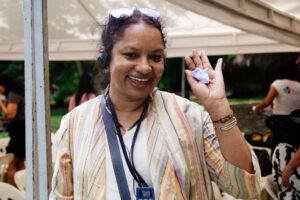
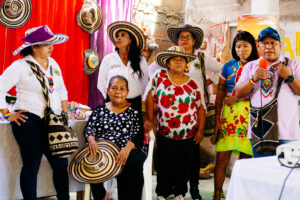
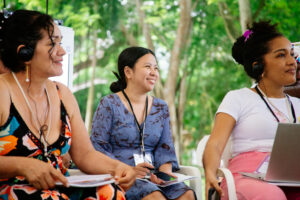
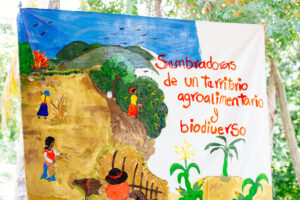
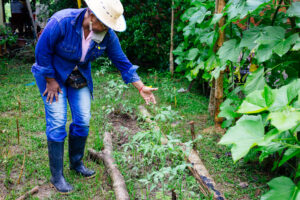
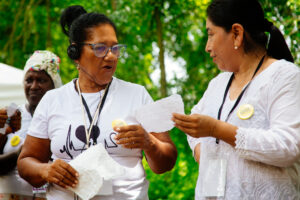
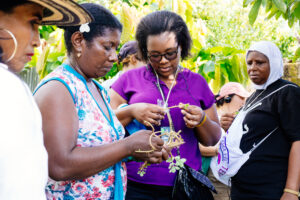
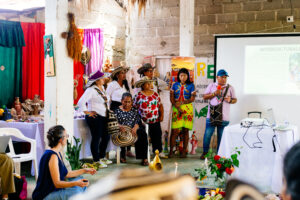
Strengthening government-civil society partnerships in Uganda
"It is vital that the Land sector administrators take a proactive and innovative approach to ensure the optimal use of land, as this will help all of us respond to the land sector's changing needs in the overall context of socio-economic transformation in the 21st century."
Hon. Jessica Alupo, Vice President of Uganda
"This is an opportunity for us to map out all of our stakeholders...to make sure that whatever policy is proposed has to be inclusive"
Hon. Judith Nabakooba, Minister of Lands, Housing and Urban Development, Uganda
bringing together
participants
The same month as women in our network gathered in Colombia, 160 policymakers, legal experts, community leaders and advocacy groups from 35 countries gathered for a learning week on Government-CSO Partnerships in Uganda.
Together, they embarked on interactive plenary sessions and field visits, exploring innovative approaches and forging synergies that enhance the land sector’s transparency, equity, and sustainable development.
During the event, we identified possible government allies from Uganda, Cameroon, Burkina Faso, Madagascar, Colombia and DRC. These actors will be key to helping keep land rights high in governments’ agendas. Vice President of Uganda, Hon. Jessica Alupo, came out of the event inspired to do just that.
Building momentum for people-centred conservation in Kenya
bringing together
participants
visiting
communities in kenya
Uganda was the second of two learning exchanges we hosted in Africa this triennium. In October 2023,190 land rights activists from across Africa came together in Kenya to strengthen their efforts towards people-centred climate justice and to resist the fortress-conservation initiatives displacing communities across the region.
During the Africa Learning Exchange, we shared experiences and strategies aimed at fortifying the role of women in youth in land rights advocacy, building community resilience, optimising land management and stimulating economic development.
Participants recognised the need for continued and joint collaboration among stakeholders, including government bodies, NGOs, and communities. They therefore committed to establishing platforms for sharing successful experiences and lessons learned among African countries engaged in community-based conservation.
“As a representative of the Yaaku Indigenous community, it was inspiring to meet like-minded individuals from across Africa. The event gave us a platform to share our challenges and successes in conservation and land rights, while I learned valuable strategies that I can take back to my community.”
Racheal Malka Mpeletion, Yaaku Indigenous community representative
Uniting for social inclusion and youth in Indonesia
Youth in our network came together during our May 2023 learning exchange in Bali, Indonesia. Organised in collaboration with the Tenure Facility, the Coalition for Tenure Justice Indonesia, and Samdhana Institute, this global learning exchange drew over 120 participants, including 20 ILC members.
During the event, participants broke down strategies for improving the inclusion of women, youth, and marginalised groups in securing land tenure rights, and enabled the establishment of dialogue spaces between local communities and government officials. In a key learning moment, more than 60 young people travelled to communities across Java, West Nusa Tenggara and Bali, learning of the struggles faced by a people who have always lived in harmony with their environment. There Suyitno and Nuraini, land and environmental rights defenders from Pancer, East Java Indonesia fighting to protect the beautiful coral reefs of Pancer from mining operations in the area.
Our struggle has become a fight to preserve our ways in order to protect the environment. And I face many risks and I sacrifice so much. And for what? It’s for the future generations who need a healthy and clean environment
Nuraini told us.
bringing together
participants
visiting
communities
After sharing experiences, looking for solutions, and standing together and in solidarity, young ILC leaders came together to form a Land Reference Group. Between 2023 and 2024, this group was instrumental in bringing youth-led solutions in climate and nature spaces, particularly at the Asia Pacific Climate Week 2023, where it organised a hybrid panel discussion around Creating Space for the youth of Asia to drive climate solutions, featuring six young leaders as key spokespersons.
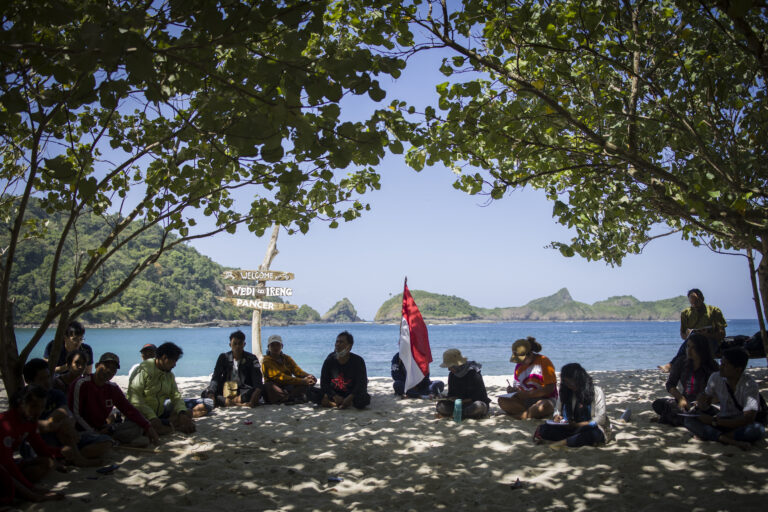
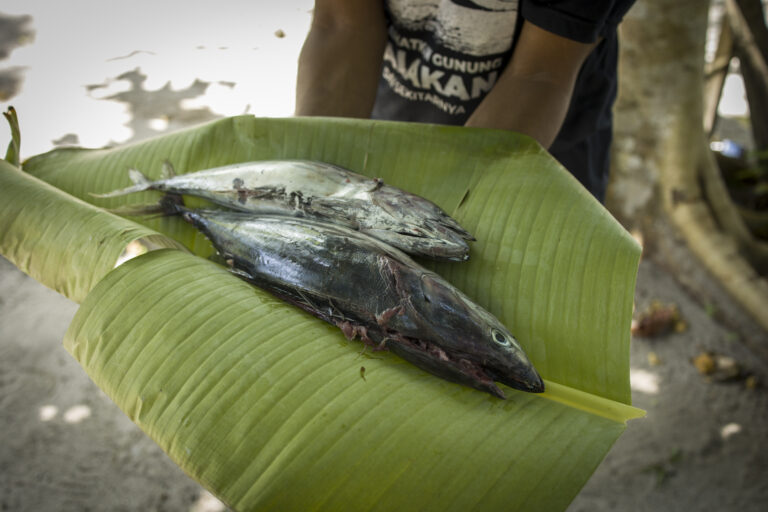
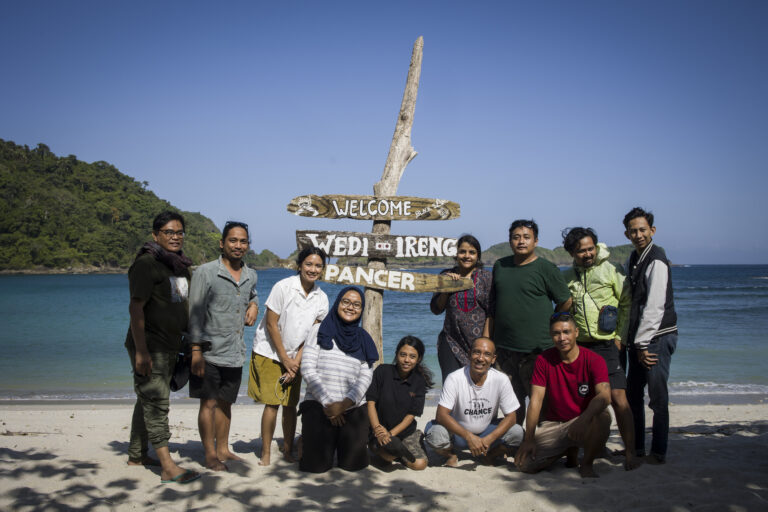
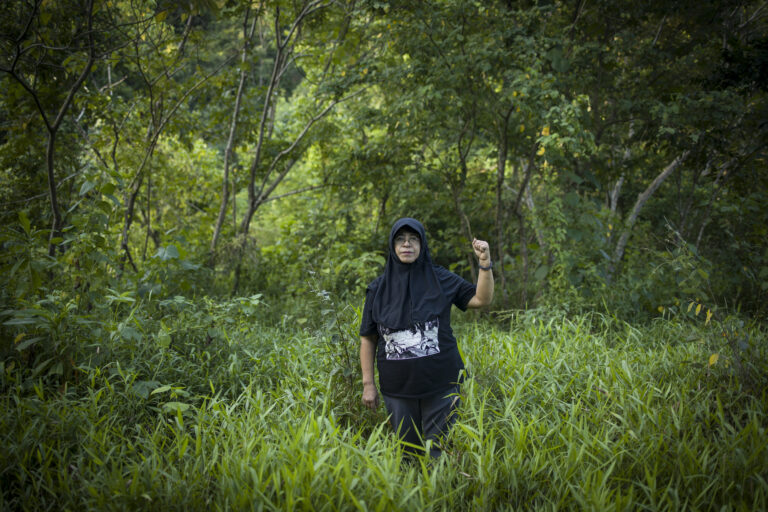
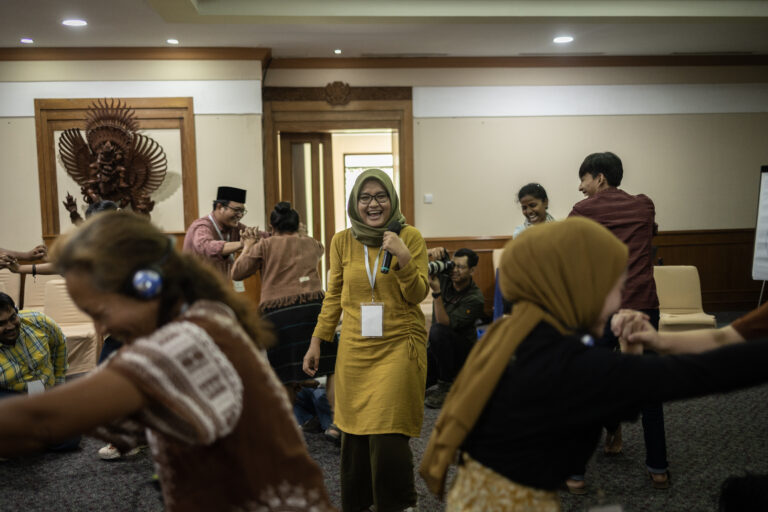
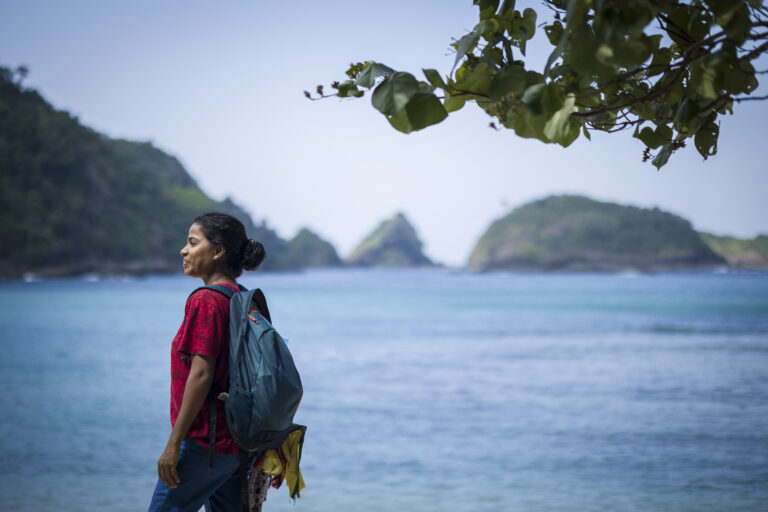
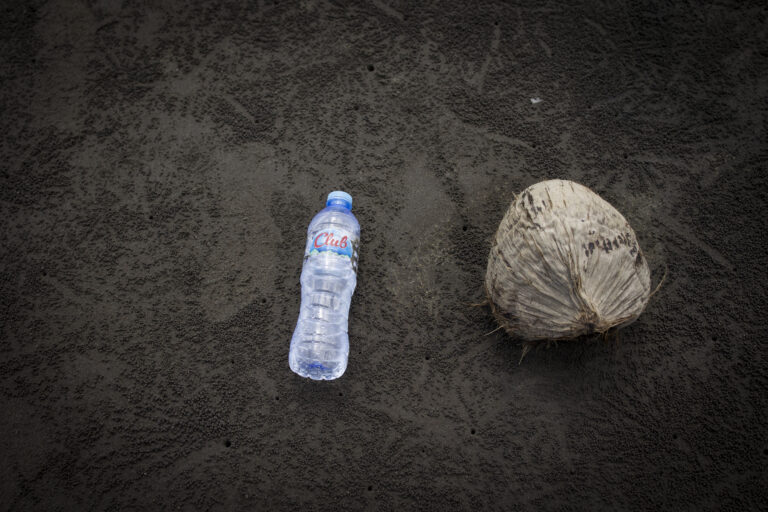
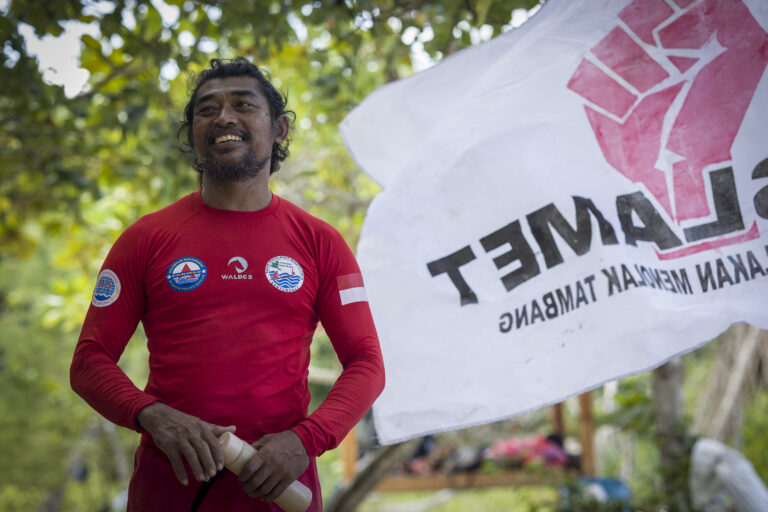
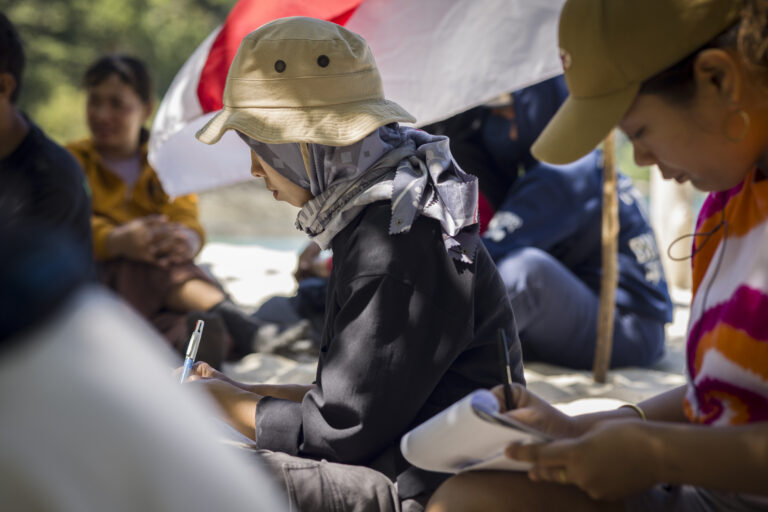
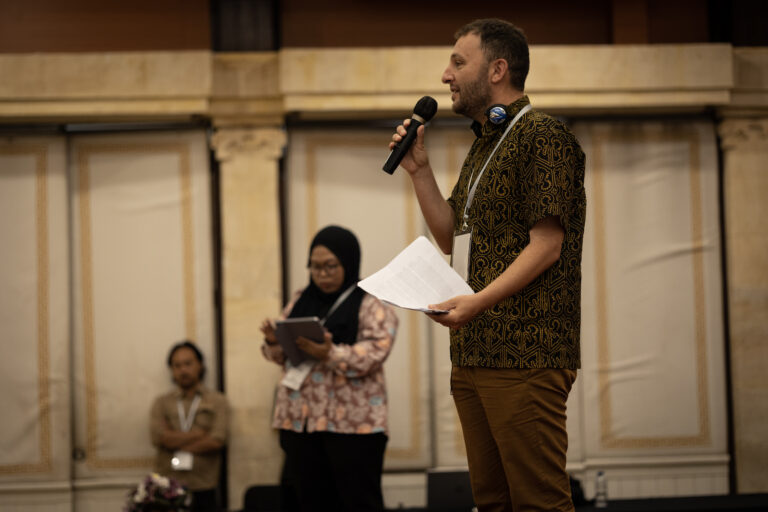
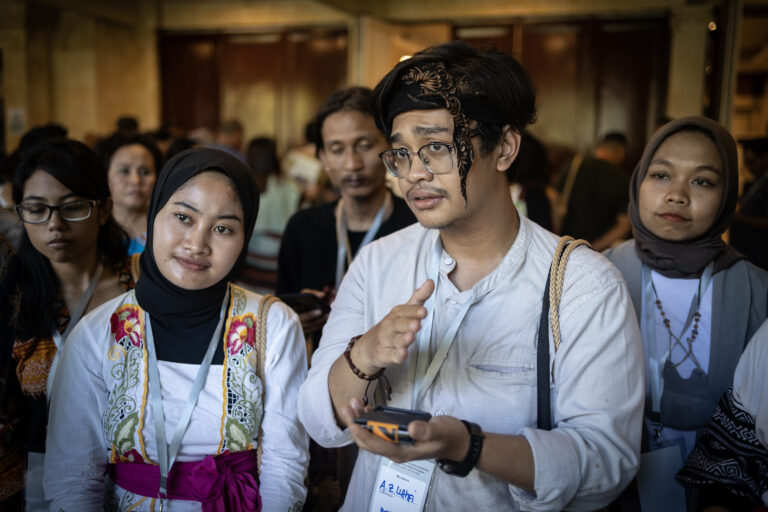
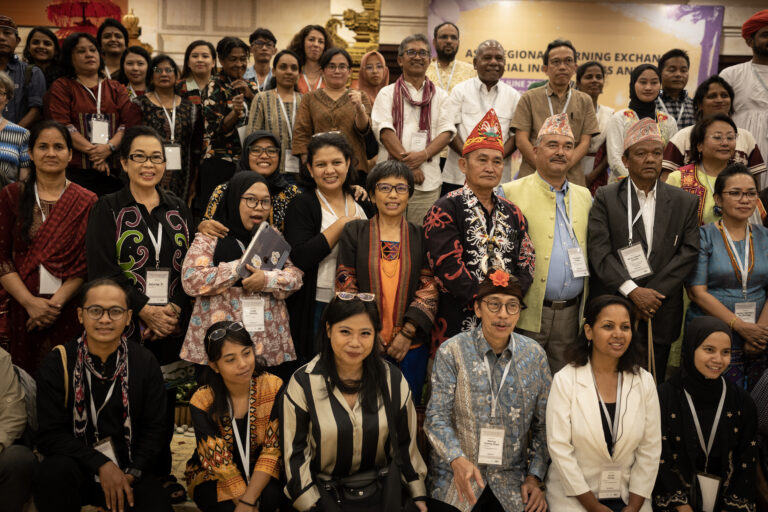
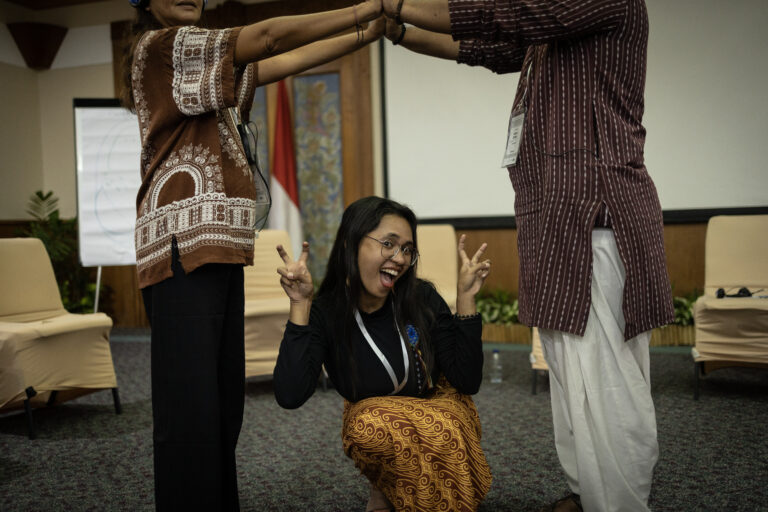
Young leaders take charge
This triennium, we have worked hard not only in Asia but globally, to create spaces for youth to challenge the status quo in their land rights struggles.
During the 2023-24 Youth Leadership Programme youth gathered to strengthen their land rights, climate, and women’s rights advocacy initiatives. Their priorities – not unlike María Elena Quimbiamba’s community-led conservation in Ecuador or Reng Young Mro’s activism against land grabbing in Bangladesh – will form the cornerstones of ILC’s future.
Building on its 2022 cohort of 21 fellows, the 2023- 2024 cohort has grown to include 23 fellows.
During the 18-month initiative led by young leaders from over 30 ILC member organisations, they have learned together using a digital campus, through project management and leadership workshops, one-on-one coaching, and 22 ILC-funded innovation projects.
The gender-focused curriculum also includes a series of global and regional events designed to amplify youth voices in land governance and foster recognition of the importance of youth inclusion within the ILC. In early 2024, participating youth met each other for the first time during a weeklong workshop in Thailand, forging joint understandings and alliances.
It is invigorating to see fellows already taking the lead in key advocacy spaces worldwide (including climate weeks and the Rio Convention COPs), where they have articulated youth perspectives, solidifying their roles as thought leaders. Kantuta Conde – a young Bolivian land rights defender and member of the 2021- 2022 youth leadership programme – represented her indigenous land rights struggles for Land Rights Now!’s “She Should Make The News Campaign”, during COP27. There, she came with a powerful message,
“Indigenous Peoples are not victims. Indigenous youth are guardians of climate action.“
None of us have completely different land rights problems,” affirms youth fellow, and ILC co-chair Doris Munyingi, who works with Groots, Kenya. “They are quite similar across the globe, it’s just that they present themselves in different ways. So we are now able to do this in unity!
Doris Munying, Groots (Kenya)
gender justice
Building a gender-just coalition
Collective learning on gender justice is one of the most important initiatives we undertake to break cycles of gender injustice within our own coalition and partnerships.
This triennium, during a series of Gender Justice learning labs, we worked to raise awareness, challenge norms, and forge alliances to fulfil our pledge to gender justice. During 10 labs organised between 2022 and 2024, ILC members – including from ILC’s Gender Experts Network, Women’s for Women’s network and focal points of Gender Audits’ – showcased success stories and tools by ILC members. The labs are vital to furthering gender justice initiatives that can help build gender-sensitive work cultures, safe spaces for all, and support women’s full participation and leadership. Key labs included Gender Transformative Approaches, labs focusing on best practices for internal gender audits and external CEDAW reports, and labs tackling emerging issues in gender justice, like non-binary approaches in the land sector and decolonising feminism.
"People’s organisations should come together to exchange ideas, educate women on their rights, and mobilise as a united front"
-Diocelinda Iza, learning lab on decolonization of feminism